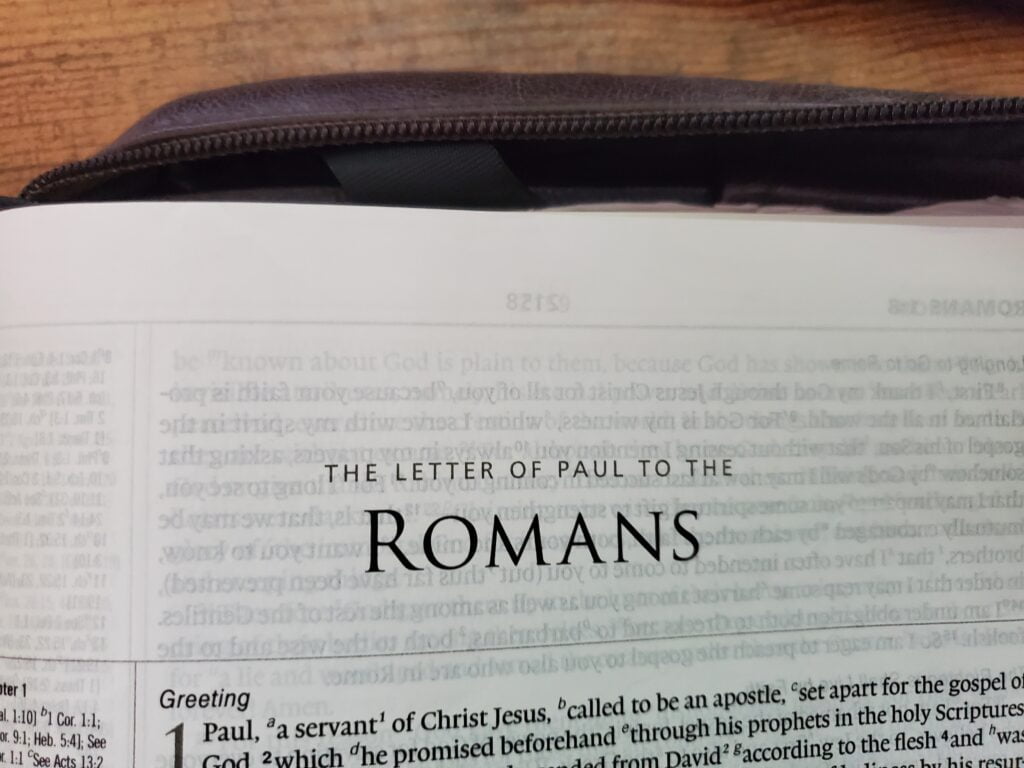⏱️ Estimated Reading Time: 3 min read
Romans 2:12–13, “12 For all who have sinned without the law will also perish without the law, and all who have sinned under the law will be judged by the law. 13 For it is not the hearers of the law who are righteous before God, but the doers of the law who will be justified.”
To introduce himself to the Roman Christians he planned to visit on his way to Spain, Paul wrote a letter that outlines the gospel he preached and deals with Jew-Gentile relations (Rom. 1:8–15; 15:14–33). The gospel tells us that those who are justified—declared righteous—by faith in Christ alone have everlasting life, and that those whom God justifies trust Him throughout their lives (1:16–17). That is the good news, which we understand against the backdrop of sin. Gentiles suppress the knowledge of the Lord and approve evil, and so deserve damnation (vv. 18–32). But since even Jews practice what they condemn in others, they also incur the wrath of our impartial Creator. All who obey Him, Jew or Gentile, will receive glory, honor, and peace on the last day. Those who disobey will receive wrath (2:1–11). The problem, Paul will explain, is that no one wants to serve God apart from His grace. Moreover, we do not merit final salvation by seeking the Lord; seeking God is a fruit of faith, which is the sole instrumental cause of our justification (2:12–8:39).
In today’s passage, the Apostle continues to develop the idea of God’s impartiality and justice by noting that He will judge people according to the light they have. “The law” in Romans 2:12–13 is clearly the Mosaic law, the written expression of the Lord’s eternal moral standards given to Israel. Those who sin without this law—without possessing or having read this law—will perish, but not because they broke a law they did not know. As we will see tomorrow, people who have no access to special revelation—Scripture—are accountable to what they know of God’s law via their consciences and the created order (vv. 14–16). Individuals who do have access to the law of Moses, however, will be “judged by the law” (v. 12). They will be condemned for sinning against the far greater light that they possess.
Paul is starting to build his case for the gospel by focusing more intently on Jewish claims. In the first century, Jewish groups such as the Pharisees believed that having the law gave them a privileged position versus the Gentiles on the day of judgment, that they would go before the divine throne with an advantage over the pagan nations. While few would actually speak in such a crass manner, the implicit assumption was that the Jews would be absolved of sin simply because they had the Mosaic law, regardless of whether they actually kept its regulations. But mere possession or study of the law is not enough. Only those who do the law perfectly can be justified by it (v. 13).
Coram Deo
Paul is not teaching that it is truly possible for sinners to be justified by keeping the law. This is because no one—except Christ—can fully keep God’s commandments (Rom. 3:9–20). His point is that while having Scripture is an advantage in that it gives the Jew knowledge of God, this knowledge is of no help for salvation if it is not put to use. Similarly, we cannot rest merely in the fact that we have God’s Word on our shelves. It must also be in our minds and hearts.
Is Possessing the Law Enough?, Copyright (2021), Ligonier Ministries.



